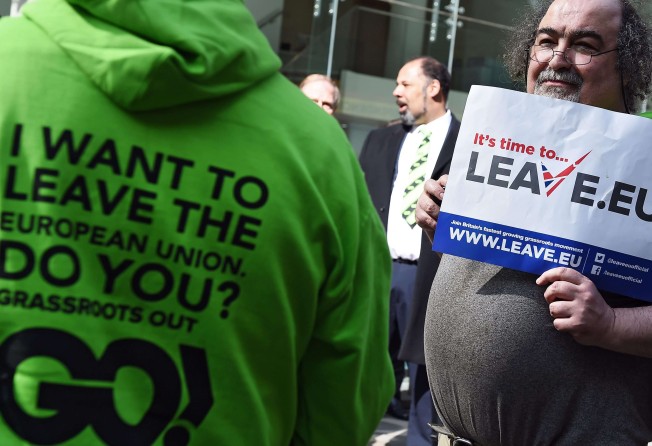The risks of Brexit are all too real
Niall Ferguson says while the post-Brexit benefits being touted stretch the imagination, it would be foolish to similarly gloss over the warnings of serious consequences

When I was a little boy, my mother liked to quote the following quatrain (sometimes attributed to the New York wit Dorothy Parker): See the happy moron, He doesn’t give a damn, I wish I were a moron, My God! perhaps I am!
I often think of the happy moron when I read the International Monetary Fund’s semi-annual publication, the World Economic Outlook. Almost without fail, it acknowledges that its previous projections were too optimistic and need to be revised downwards. The IMF’s intrinsic optimism matters because when it is pessimistic, it is very likely understating the problem. So when the newly released Outlook warned that “a ‘Brexit’ could do severe regional and global damage by disrupting established trading relationships”, I sat up.
Ah yes, you say, here we go again. It’s Project Fear. The bankers are ganging up with the Old Etonians to put the frighteners on John Bull. To allay my own fears, I read one of the most widely lauded pro-Brexit publications so far, Daniel Hannan’s Why Vote Leave. It surprised me. “Nothing will change” in the event of Brexit, according to Hannan. The paradox at the heart of the Brexiteers’ case lies here. First we are told nothing much will change. Then we are told a great deal will change, because the EU is an undemocratic superstate that is strangling British economic life with regulation.
The central claim of the publication is that Brexit would liberate Britain from a federalist plot hatched in Brussels, yet leave it free to enjoy “the European free trade zone that stretches from non-EU Iceland to non-EU Turkey”. Hannan is pulling a fast one; access to the European single market is plainly limited for non-EU members unless, like Norway, they accept EU regulations.
Hannan then offers a cornucopia of post-Brexit benefits: new trade agreements with non-EU economies, cheaper food, and emancipation from the crushing burden of our net contribution to the EU budget: £11 billion (HK$121 billion) a year. On the other side of the ledger, however, are some distinctly larger numbers. Take capital flows. A very awkward fact for the Brexit campaign is that, in the last quarter of 2015, Britain’s current account deficit hit a record 7 per cent of GDP. That needs to be financed. But the risk of Brexit is already acting like a flashing red light to foreign investors. “Project Fear”? No. This is the consensus view of the financial world.
Perhaps, as the old poem says, I am the moron. But I do give a damn about the UK’s economic future. And when I see the risks of Brexit being glossed over, I feel anything but happy.
Niall Ferguson is Laurence A Tisch professor of history at Harvard and a senior fellow of the Hoover Institution, Stanford